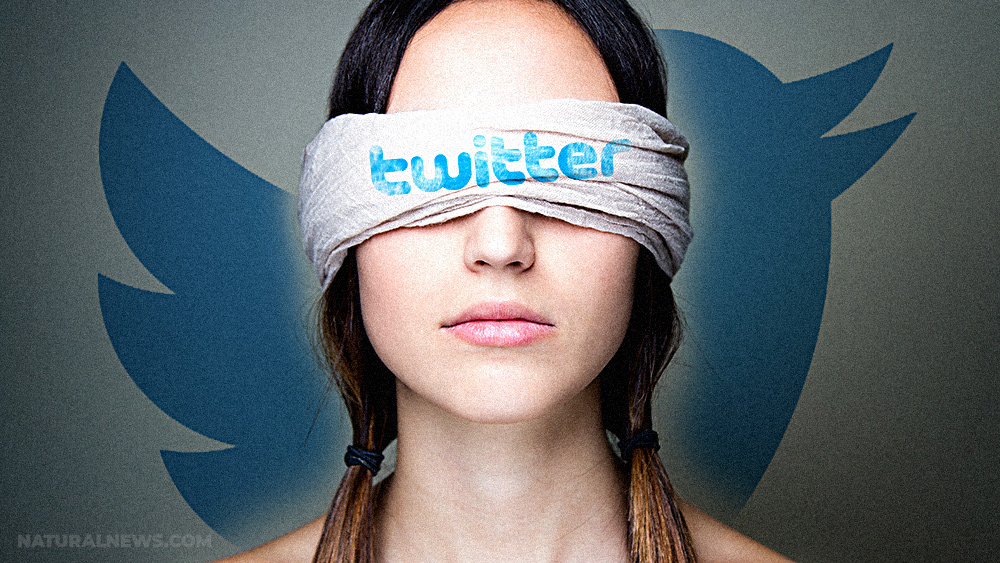by: Ramon Tomey

(Natural News) According to the Harvard University-run Lumen database, social media platform Twitter has yielded to more government demands for censorship under its new CEO Elon Musk. This appears to be a complete 180 from the free speech principles the tech mogul espoused prior to acquiring Twitter.
The database revealed that the company has received 971 government demands and court orders since Musk bought the Big Tech company for $44 billion. Twitter has fully complied with 808, or 83.21 percent of these requests. Prior to the Tesla CEO’s purchase, the compliance rate was only around 50 percent.
Rest of World reported that based on Twitter’s self-reported disclosures to Lumen, there is not a single request with which the company refused to comply. Twitter rejected three such requests in the six months before Musk assumed CEO duties.
Maintained by Harvard’s Berkman Klein Center for Internet & Society, Lumen has collected government requests to online platforms for more than two decades now. While Lumen’s data is made up entirely of self-reporting by Twitter and other platforms, outside surveys have largely confirmed its accuracy.
“Historically, it seems Twitter has sent a copy of everything they’ve received to us,” said Lumen project manager Adam Holland. “My understanding is that they have a small team of people that work on this and it’s a largely automatic process.”
However, the biggest irregularity came when the flow of new reports from Twitter abruptly stopped on April 15. The Big Tech company has not made a submission to Lumen in more than 12 days.
Holland is still determining what caused the sudden stop of reports, with the project manager being unsure if a glitch caused it or if Twitter deliberately stopped sending in data. “I would be saddened if it turned out they decided to stop sharing because a lot of really good research is being done,” he commented.
Requests come from nations with stringent speech laws
According to Rest of World‘s U.S. tech editor Russel Brandom, the bulk of the requests to Twitter came from countries that have recently passed restrictive speech laws. These nations include Turkey, India, the United Arab Emirates and Germany. The latter, which submitted 255 requests, recently increased enforcement following amendments to a 2017 law banning hate speech and extremism.
Under the leadership of former Twitter CEOs Jack Dorsey and Parag Agrawal, Twitter actively turned down these requests from many of these nations. Back in 2014, Twitter was banned in Turkey for a two-week period, partly because it refused to globally block a post that accused a former Turkish government official of corruption. Former Twitter General Counsel Vijaya Gadde, who Musk fired in late October 2022, was a driving force in the decision to resist Ankara.
In July 2022, the company sued the Indian government over an order to restrict the visibility of specific tweets. However, Twitter’s stance quickly changed when Musk took over. The site quickly complied with more than 100 block orders from New Delhi – censoring journalists, foreign politicians and the poet Rupi Kaur. (Related: Twitter Files: US government helped launch project where millions of online posts were flagged for censorship.)
While the orders to Twitter vary widely in scope and subject, all of them involve a government office asking Twitter to either remove content or reveal information about a user.
In one case from January 2023, the Indian Ministry of Information and Broadcasting ordered Twitter to take down all posts sharing footage from a BBC documentary about Indian Prime Minister Narendra Modi. Dozens of posts, including one from a local lawmaker, were removed.
Musk has abolished many of the departments in charge of processing government documents, which may have reduced Twitter’s ability to challenge these orders. At the same time, Musk has made clear in interviews that his vision of free speech does not extend to legal requests.
“We can’t go beyond the laws of a country,” he said in an interview with the BBC. “If we have a choice of either our people go to prison or we comply with the laws, we’ll comply with the laws.”
Visit BigTech.news for more news about Twitter.
Watch this clip from the Fox Business program “Kennedy” about Elon Musk’s revelation that the government has access to private messages on Twitter.
This video is from the NewsClips channel on Brighteon.com.